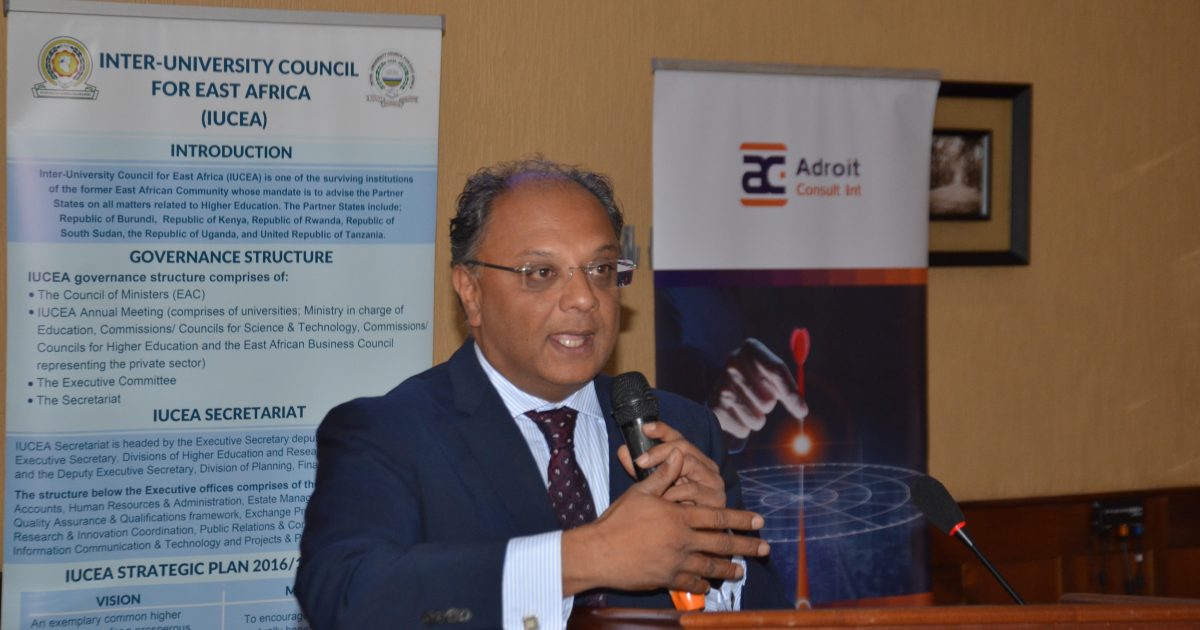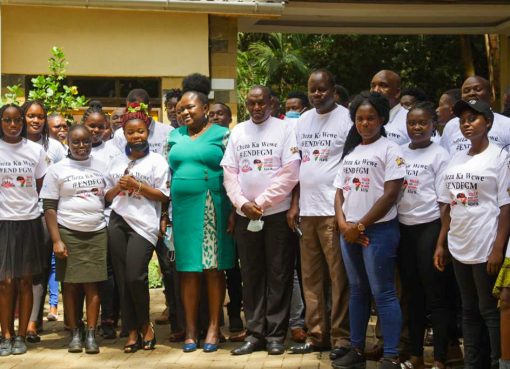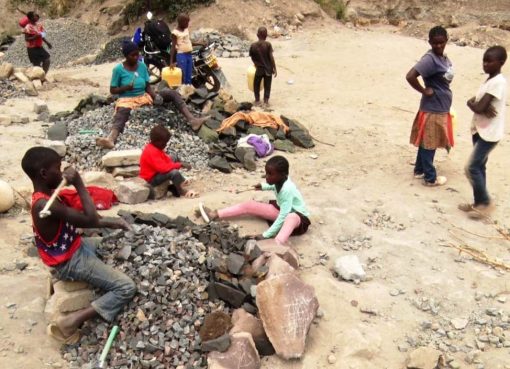

Institutions of higher learning in the East African Community (EAC) have been challenged to offer academic leadership through quality research into critical areas of need and provide solutions to concerns affecting partner states.
The Principal Secretary in the State Department for EAC (PS), Dr. Kevit Desai, speaking during the EAC Scholarship Programme Launch and induction Workshop in Entebbe, Uganda on Friday said, “specific roles of higher education institutions in the regional integration agenda include innovation that develops relevant human capital and translate research into a form that can be taken up and used by private and public sectors.
Subsequently, this will contribute to the intellectual, social and cultural resources of the region, in ways that encourage inward investment of knowledge through consultancy services, stimulate entrepreneurial activity and collaborate with businesses to create mechanisms of interaction,” added Dr. Desai.
At the same time, the PS said universities being centres of excellence can tailor courses on integration issues that promote awareness of regional policies and build capacity for participation. For instance, they can draw from local scholarly expertise to engage with regional strategies and programmes either in the form of advising, providing input or conducting formative or evaluative research into critical areas of regional development such as prevention and control of communicable and non-communicable diseases.
Equally, they can carry out policy analysis, robustly critique and debate around regional strategies, policies and programmes in the interest of the EAC citizenry.
“It is also imperative for institutions of higher learning to promote enterprise and business development growth by inculcating entrepreneurial culture amongst staff, students and graduates. This results in a pool of skilled human resource retaining the much required skills in the region, thus providing mechanisms to stimulate business start-ups or spin-outs amongst graduates and staff, necessary to create cross-border networks and linkages to form foundation for future cross-border co-operation and investment,” observed Dr. Desai.
The Principal Secretary reminded universities to protect intellectual properties through patenting for institutions to earn revenue and act as a stimulus for further research and innovations, which will initiate policy analysis and create an impetus for countries’ destination.
He also called on universities to be designing teaching and research programmes around issues of regional interest such as health, political integration models and setting up regional academic centres of excellence in order discuss issues of common concern.
Dr. Desai appealed to universities to foster direct engagement with communities and become even greater forces of societal transformation and provide immediate solutions, for example the case of Moi University in Kenya working towards revitalization of Rivatex textile industry.
Further, he underscored the need for higher learning institutions in the region to embrace regional exchange programmes that provide opportunities for increased mobility and reciprocal learning in building regional knowledge base and identity for social and economic cohesion.
Meanwhile, the PS congratulated the sixty pioneer students to benefit from the East African Community (EAC) Scholarship Programme initiative by the Partner States, the Inter-University Council for East Africa (IUCEA) and the German Development Bank-KFW. He urged them to take the lead to champion EAC aspirations and become innovative to tackle difficulties encountered in the the region.
The students were drawn from all Partner States. Kenya has 10 beneficiaries of this initiative. The Director for Economic Affairs, Production and Infrastructure, Dr. Andrew Musime introduced the pioneering students into the EAC aspirations and pillars of integration.
By Hilary Mongera





